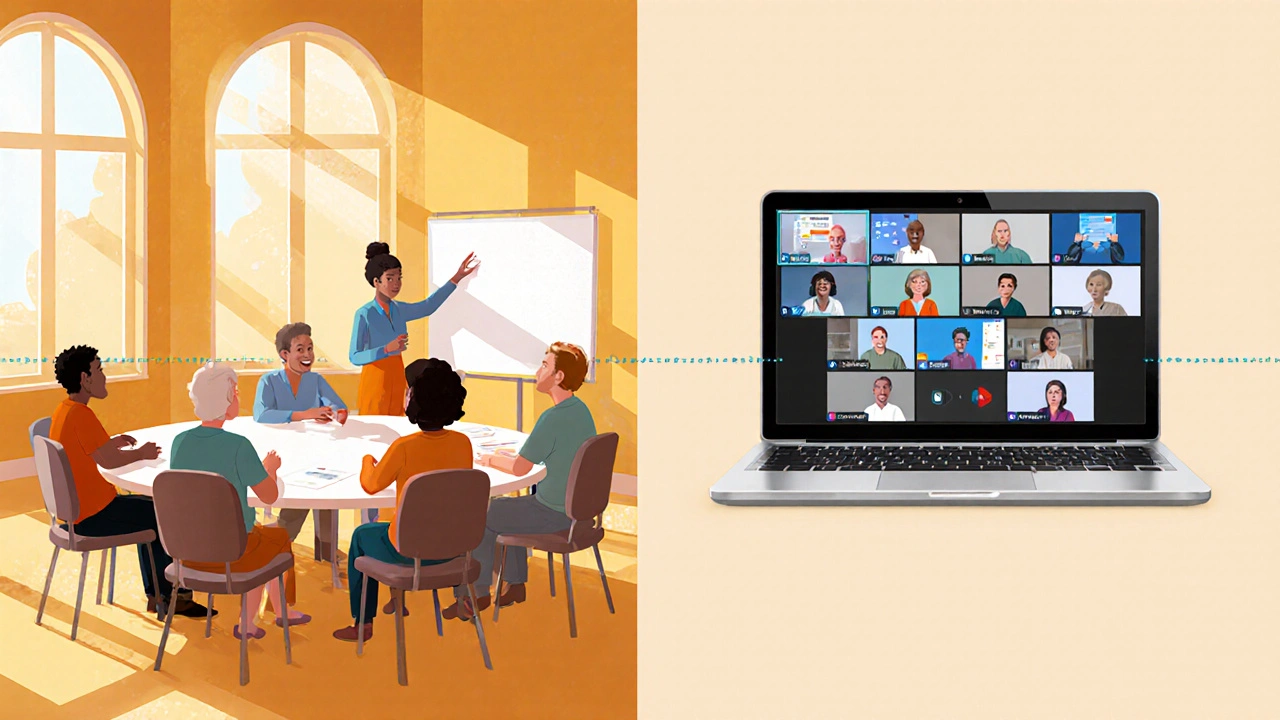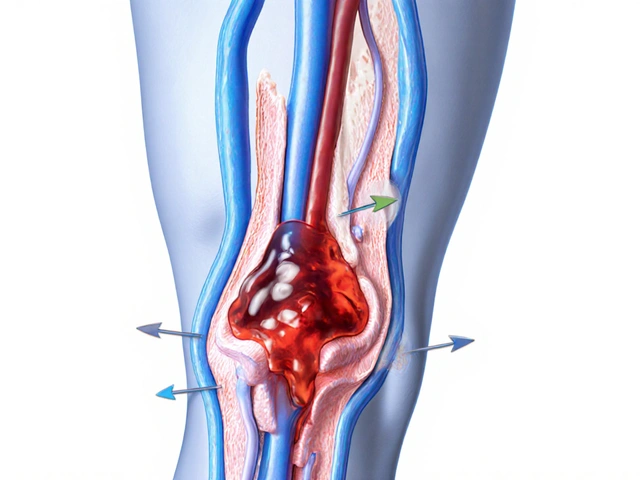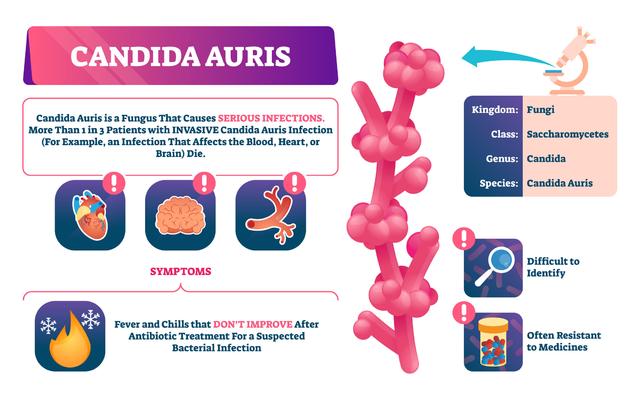Support Group Evaluation Tool
Evaluate Your Support Group Experience
Answer these questions to discover how well your current support group meets your needs and where you can improve your experience.
Living with an overactive bladder can feel isolating, but you don’t have to face it alone. Overactive Bladder Support Group is a gathering-online or in‑person-where people share experiences, coping strategies, and encouragement. Connecting with others who understand the urgency of a sudden urge can boost confidence, reduce anxiety, and even improve treatment outcomes.
What Exactly Is an Overactive Bladder Support Group?
A support group is a peer‑led or professionally moderated space that focuses on emotional, practical, and educational aspects of a health condition. For overactive bladder (OAB), the group discusses symptoms such as frequent urgency, nocturia, and urinary incontinence, while also exploring lifestyle tweaks, pelvic floor exercises, and medical options.
These groups differ from clinical appointments: they prioritize shared lived experience over diagnosis. Members can ask “real‑world” questions like, “How do you manage bathroom breaks at work?” or “What’s the best bladder diary app?” without feeling judged.
Why Join a Support Group?
- Emotional relief: Hearing others voice the same worries normalizes your feelings and reduces shame.
- Practical tips: Learn tricks for timing fluid intake, choosing absorbent products, or using the “double void” technique.
- Educational resources: Groups often bring in guest speakers-urologists, pelvic‑floor therapists, or representatives from the American Urological Association-who explain the latest evidence‑based treatments.
- Motivation for self‑care: Regular meetings encourage adherence to bladder‑training schedules, medication regimens, and pelvic‑floor exercises.
- Advocacy opportunities: Members may collaborate on awareness campaigns or fundraising for research.
Types of Support Groups
Support groups come in several formats, each with its own pros and cons. Below is a quick comparison to help you decide which model fits your lifestyle.
| Feature | In‑Person | Online |
|---|---|---|
| Interaction style | Face‑to‑face, immediate feedback | Video chat or forum posts, flexible timing |
| Accessibility | Requires travel; limited to local area | Can join from anywhere with internet |
| Privacy level | Higher anonymity if held in clinical settings | Depends on platform; pseudonyms possible |
| Facilitation | Often led by a healthcare professional or trained peer | Can be peer‑moderated or self‑directed |
| Cost | May charge venue fees; sometimes free through hospitals | Usually free; some platforms have premium features |

Where to Find a Support Group Near You
Finding a relevant group isn’t as hard as it seems. Start with these trusted sources:
- National Associations: The National Association for Continence (NAFC) maintains a searchable directory of both in‑person and virtual groups across the United States.
- Hospitals and Clinics: Many urology departments or continence clinics host monthly meetings. Ask your urologist or primary care physician if they know of any local gatherings.
- Community Centers: Senior centers, YMCA facilities, and local health‑department offices sometimes run health‑focused support circles.
- Online Platforms: Websites like Inspire, PatientsLikeMe, and specific subreddits (e.g., r/overactivebladder) host active discussion threads where members arrange virtual meet‑ups.
- Telehealth Portals: Some telehealth services embed group sessions within their patient portals, allowing you to join scheduled chats after a video consult.
When you locate a potential group, reach out with a brief email or phone call. Ask about meeting frequency, facilitator credentials, and whether a trial session is offered.
Choosing the Right Group for You
Not every group will click. Consider these criteria before committing:
- Facilitator expertise: A certified continence nurse, pelvic‑floor physical therapist, or a urologist brings credibility and can answer medical queries.
- Group size: Smaller groups (5‑10 members) often allow deeper conversation, while larger ones can offer diverse perspectives.
- Frequency & length: Weekly 60‑minute sessions are common; ensure the schedule aligns with your work and family commitments.
- Focus: Some groups concentrate on lifestyle management, others on medication experiences. Pick one that matches your current priorities.
- Privacy policies: Verify that the group follows HIPAA‑compliant practices if health information is shared, especially for professional‑led sessions.
Getting the Most Out of Your First Meeting
Walk into your first session prepared so you can absorb as much value as possible.
- Bring a bladder diary: Recording frequency, volume, and triggers for a few days prior helps you discuss concrete data.
- Write down questions: Whether you’re curious about anticholinergic side effects or the best timed‑voiding schedule, having a list ensures you won’t forget.
- Set personal goals: Maybe you want to reduce nocturia from three times to one. Share this goal; the group can hold you accountable.
- Respect confidentiality: Reinforce the group’s privacy rule-what’s shared stays within the circle.
- Take notes: Jot down useful resources, such as recommended apps for tracking voids or recommended pelvic‑floor exercise programs.
Complementary Resources to Boost Your Journey
Support groups work best when paired with evidence‑based self‑care tools.
- Bladder Diary Apps: MyBladder and URinTrack let you log episodes, fluid intake, and urgency levels.
- Pelvic‑Floor Therapy: Certified therapists teach quick‑start programs like PFIT (Pelvic Floor Integrated Training) that you can practice at home.
- Medication Guides: Anticholinergics (e.g., oxybutynin) and beta‑3 agonists (e.g., mirabegron) have distinct side‑effect profiles-knowing them helps you converse intelligently with clinicians.
- Lifestyle Tweaks: Caffeine reduction, timed voiding, and fluid‑distribution strategies are often highlighted in group discussions.
- Quality‑of‑Life Measures: The International Consultation on Incontinence Questionnaire‑OAB (ICIQ‑OAB) provides a standardized way to track symptom improvement over time.

Success Stories: Real People, Real Change
Sarah, a 58‑year‑old teacher from Portland, joined a local NAFC meetup after months of feeling embarrassed about frequent bathroom trips. Within three months, she reported a 40% reduction in urge episodes, thanks to group‑shared bladder‑training schedules and a referral to a pelvic‑floor therapist she discovered via a member’s recommendation.
Mark, a 35‑year‑old software engineer, preferred the anonymity of an online Reddit thread. By swapping notes on low‑caffeine coffee substitutes and using a smart‑watch reminder for timed voids, he managed to eliminate nocturia completely in six weeks.
These anecdotes highlight two core benefits: accountability (keeping you on track) and knowledge exchange (learning what worked for others).
Potential Pitfalls and How to Avoid Them
While support groups are powerful, they can sometimes backfire if you’re not discerning.
- Unverified advice: If a member suggests an unapproved supplement, double‑check with your healthcare provider.
- Negative dynamics: A dominant personality may steer conversation. If you feel unheard, politely request a facilitator‑led round‑robin or consider switching groups.
- Over‑reliance on anecdotal cures: Personal stories are valuable, but they don’t replace clinical evidence. Balance group wisdom with physician guidance.
- Privacy breaches: Ensure the virtual platform uses encryption. Avoid sharing full medical records unless the group is certified.
By staying critical and communicating openly, you safeguard both your health and your peace of mind.
Next Steps: Building Your Support Network Today
Ready to take action? Follow this streamlined plan:
- Identify your preferred format: In‑person, video‑chat, or forum‑based?
- Search the NAFC directory or ask your urologist for local listings.
- Set up a provisional schedule: Reserve 1-2 hours per week for the first month.
- Prepare your bladder diary and jot down 3-5 key questions.
- Attend a trial session and evaluate facilitator expertise, group vibe, and information relevance.
- Commit to one group that meets your criteria, and pair it with a pelvic‑floor exercise routine.
Within a few weeks, you’ll likely notice a boost in confidence, a clearer treatment roadmap, and a network of allies who truly get what you’re dealing with.
Frequently Asked Questions
How often should I attend a support group?
Most groups meet weekly or bi‑weekly for 60‑90 minutes. Regular attendance (at least once a month) is enough to build rapport and gain consistent tips, but you can adjust based on your schedule and how much you’re benefiting.
Are support groups covered by insurance?
Generally, peer‑led groups are free, while professionally facilitated sessions may have a modest fee. Some insurers reimburse community‑based programs if they’re prescribed by a physician, so check your plan’s benefits.
Can I join a support group if I’m on medication for OAB?
Absolutely. In fact, many members discuss medication experiences-dosage, side effects, and timing-so you can compare notes and ask informed questions to your doctor.
What if I feel uncomfortable sharing my story?
You’re not forced to speak. Listening alone provides valuable insights. When you’re ready, you can share anonymously or use a pseudonym, especially in online forums.
How do I evaluate the credibility of an online forum?
Look for moderators with professional credentials (e.g., certified continence nurse). Check whether the platform enforces privacy policies and whether medical advice is tagged with disclaimer language.








19 Comments
Richard Wieland October 12, 2025
I get how isolating OAB can feel, and finding a supportive community really helps lift that weight.
rachel mamuad October 15, 2025
Honestly, the whole support grp thing is a game‑changer for managing OAB symptoms. You’ll pick up tips on fluid‑timing, pelvic‑floor regimens, and even the newest anticholinergic data that most docs don’t dive into. Thier experiences give you a real‑world lens on patient‑reported outcomes that you can’t get from a textbook. Definately worth the extra 30 minutes each week.
Maricia Harris October 19, 2025
Ugh, another “support group” meeting? If they can’t stop the leaks, why bother?
Tara Timlin October 22, 2025
Joining a support group for overactive bladder can feel like stepping into a room full of strangers who suddenly understand a problem you’ve kept private for years.
The first thing I tell newcomers is to bring a bladder diary, because numbers speak louder than anecdotes.
When you see your own frequency patterns laid out on paper, the group can help you spot triggers you never considered, like that late‑night soda habit.
Most groups are moderated by a certified continence nurse or a pelvic‑floor physical therapist, which means the advice you get is grounded in evidence, not myth.
Don’t be shy about asking how different medications compare; members often share side‑effect stories that help you weigh risks before you talk to your urologist.
I’ve watched participants swap app recommendations-MyBladder, URinTrack-each with its own strengths for tracking volume and urgency.
One of the biggest wins is learning the “double‑void” technique, a simple timed‑voiding hack that cuts nighttime trips dramatically for many.
Because the meetings are usually 60 minutes, you get a quick, focused burst of motivation that keeps you accountable to your personal goals.
If you’re worried about privacy, ask the facilitator about HIPAA compliance and whether the group uses encrypted video platforms.
Online groups add the benefit of anonymity-you can use a pseudonym and still get solid peer support without anyone ever seeing your face.
In‑person gatherings, on the other hand, let you read body language and forge deeper friendships that can turn into real‑world accountability partners.
I’ve seen members form walking clubs to practice pelvic‑floor exercises together, turning a clinical routine into a social event.
The community also serves as an advocacy engine, sometimes lobbying for better insurance coverage for continence supplies.
When the group shares research updates-like the latest beta‑3 agonist trials-you stay ahead of the curve without scouring journals yourself.
Remember, the goal isn’t to replace your doctor but to supplement the care plan with lived‑experience insights you can trust.
So sign up, show up, and let the collective knowledge push your bladder health forward.
benjamin malizu October 26, 2025
It is ethically imperative that patients seek peer‑supported education in conjunction with clinical oversight; neglecting community input borders on medical negligence. The integration of empirically‑validated pelvic‑floor protocols within support groups enhances adherence and outcomes. Ensure the facilitator holds credentials such as a CNP or a PT specializing in continence.
Maureen Hoffmann October 29, 2025
Hey there! 🎉 I’ve watched countless members go from “I can’t even leave the house” to confidently scheduling coffee dates without fear of an unexpected dash to the restroom. Your journey starts the moment you step into that circle-bring your questions, your humor, and that unstoppable spirit. We’ve got your back, literally and figuratively!
Alexi Welsch November 2, 2025
While the merits of support groups are frequently extolled, one must consider the potential for anecdotal misinformation to supersede evidence‑based practice. A rigorously moderated forum mitigates this risk, yet many gatherings lack such oversight, leading to the propagation of unverified remedies.
Ryan Hlavaty November 5, 2025
Honestly, if you’re not pulling at least weekly attendance, you’re not giving yourself a fair shot at improvement. Consistency breeds trust, and trust builds the kind of peer pressure that actually nudges you to stick to bladder‑training schedules.
Chris Faber November 8, 2025
Sounds cool, I might check it out.
aura green November 12, 2025
Oh wow, another “miracle cure” lurking in a Reddit thread? 🙄 As if we needed more advice about drinking water at 2 am. Sure, join a support group, post your diary, and expect instant enlightenment. In reality, it’s a steady grind of sharing tips, listening to strangers, and hoping someone finally mentions the double‑void trick that you missed last year. If you can survive the occasional eye‑roll when someone mentions herbal teas, you’ll probably walk away with a handful of genuinely useful strategies.
Sriram K November 15, 2025
From a clinical perspective, the combination of structured pelvic‑floor physiotherapy and peer support yields better long‑term adherence than either alone. Encourage your group to schedule guest sessions with a continence nurse; the Q&A format often clears up misconceptions that linger after appointments.
Deborah Summerfelt November 19, 2025
Seriously, why trust a random internet forum when your doctor can prescribe the latest meds?
Maud Pauwels November 22, 2025
I appreciate the thoroughness of the guide it’s a solid starting point
Scott Richardson November 26, 2025
All this talk about support groups is fine but don’t forget to demand better insurance coverage in your country.
Laurie Princiotto November 29, 2025
Look, if you’re not speaking up about the crap you’ve tried, you’re just hurting yourself 😤. Own your story and the group will lift you up.
Justin Atkins December 3, 2025
One must acknowledge that the epistemic value of communal testimony lies in its capacity to complement, rather than supplant, the hierarchical knowledge structures inherent in contemporary urological practice.
June Wx December 6, 2025
Ugh, another person whining about leaks, can we just move on?
kristina b December 10, 2025
The human condition, in its relentless quest for autonomy, often finds itself shackled by the most intimate of betrayals-a bladder that refuses obedience. In this microcosm of vulnerability, the support group emerges as a secular agora where experiential wisdom contends with clinical doctrine. One must therefore consider the dialectic between self‑efficacy and communal reinforcement as a catalyst for embodied emancipation. Through ritualized sharing, participants reify their narratives, transforming shame into collective resolve. Thus, the very act of speaking becomes a therapeutic praxis, reshaping identity in the face of physiological adversity.
Ida Sakina December 13, 2025
While your enthusiasm is commendable, I would caution against treating peer anecdotes as de facto guidelines; the lack of randomized controls in such settings can perpetuate confirmation bias.